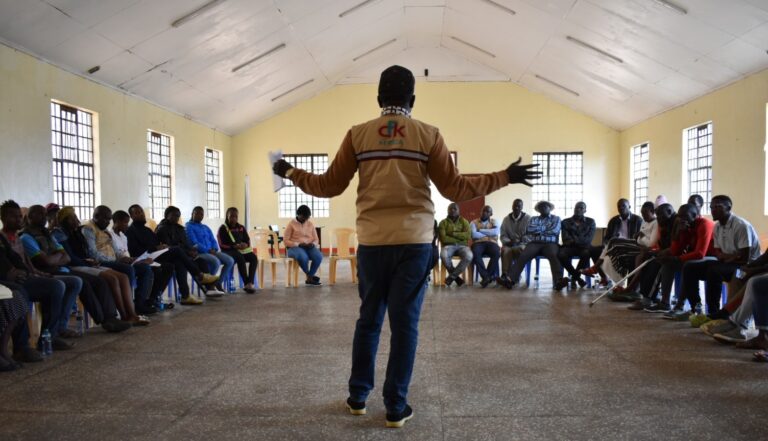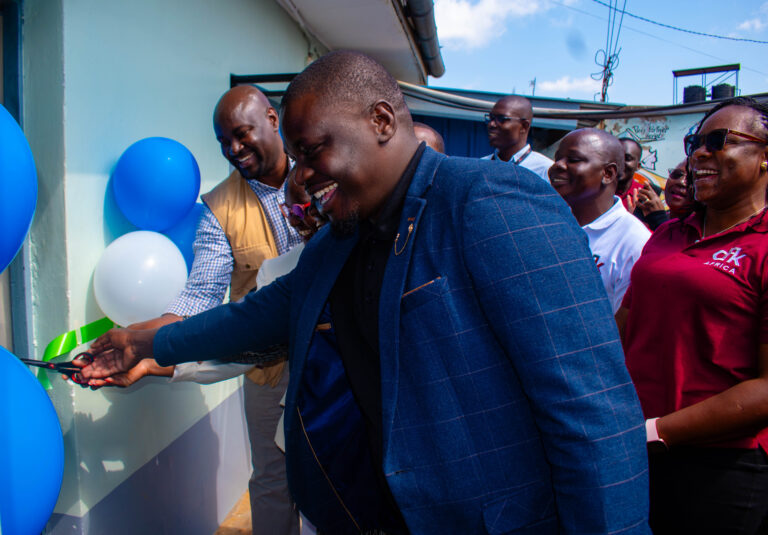Our Theory of Change
All we do at CFK Africa is a product of listening and co-creating alongside our communities. Our locally led approach to participatory development is rooted in values of sustainability, equity, and community-ownership.
We believe that sustainable impact and solutions to poverty are only possible when the communities most affected by it are the real change-makers. Members of the communities we serve engage in all stages of our project design and implementation.

Our Theory of Change is an ongoing process of reflection to explore impact and how it happens in our informal settlement context. These seven guiding principles enable us to learn from others, build a common understanding of our work, and develop clarity in our strategies and partnerships.
We see community engagement as the core of community development, and we work hand in hand with communities in Kenyan informal settlements to take the lead in shaping change efforts.
We embrace continuous improvement, learning from failures as well as community feedback, and staying responsive to evolving needs.
We constantly monitor our programs, gather feedback, and adapt in real time to address emerging challenges and seize new opportunities.
We work with partners to combine our strengths, pool resources, and share expertise toward solutions that are impactful and comprehensive.
We consider the broader context of our work and recognize the interconnected factors that affect our initiatives.
We prioritize open and honest communication to build trust within the organization, within the communities we serve, and among our partners.
We assess existing initiatives to avoid duplication and seek opportunities for collaboration.
We build powerful partnerships to address the biggest barriers to positive health and education outcomes in informal settlements. We know that the collaborative efforts of non-profits, community-based organizations, non-governmental organizations, academic institutions, youth and community leaders, philanthropic foundations, individual donors, and government are necessary to effect lasting changes in communities.
